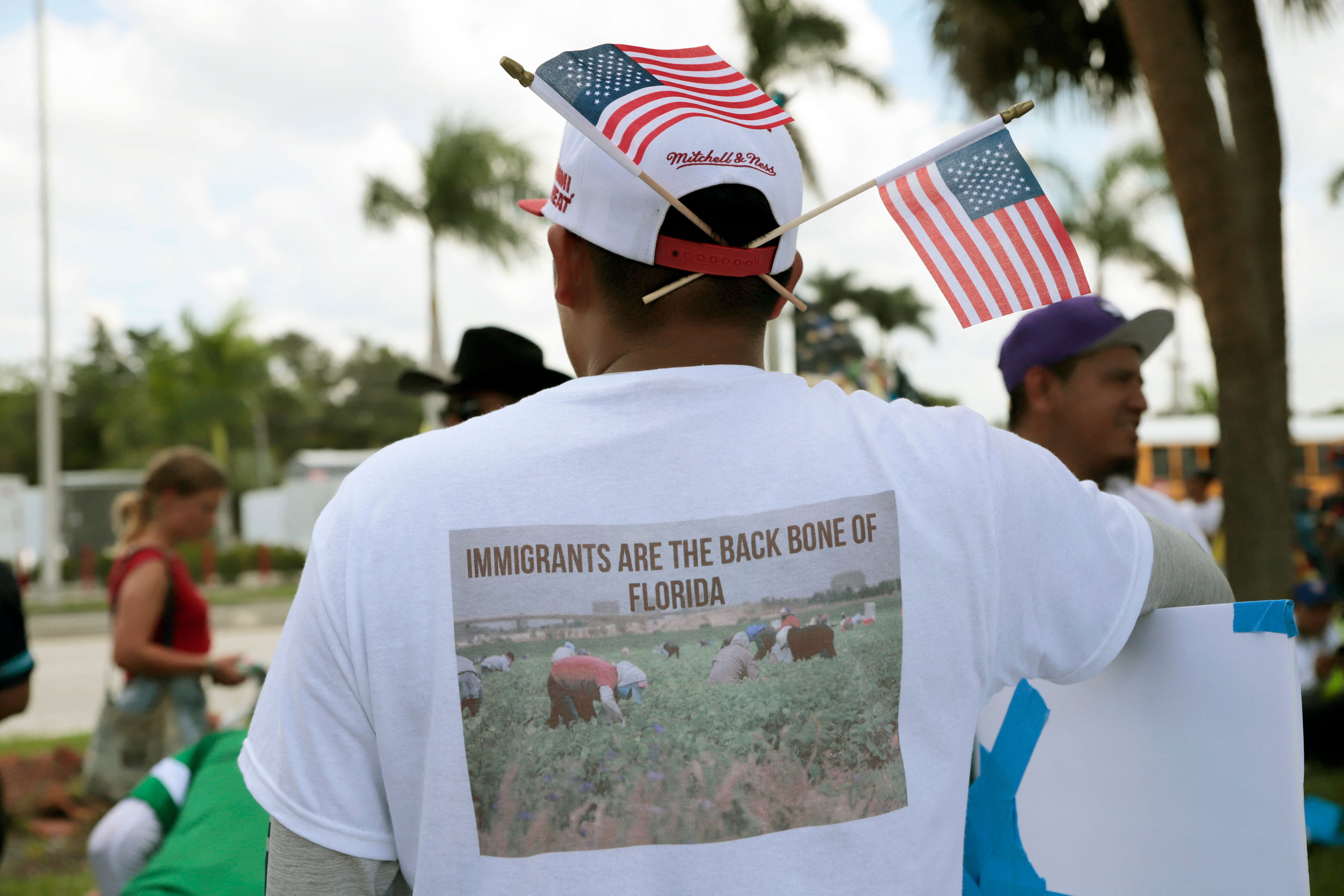Prison can be a tough place. To some degree, it’s supposed to be.
But it can also be a place of redemption, where those who’ve done wrong can discover their own value and help others find theirs.
Out on Southwest 8th Street, past the Miccosukee casino, sits Everglades Correctional Institution, the first of what are now four "incentivized" prisons in the Florida Department of Corrections system.
"Incentivized? I’m like, they let me go home? What does incentivized mean?" Tydaraius Newell said he asked himself when a classification employee suggested he might want to apply for a transfer to ECI.
Get South Florida local news, weather forecasts and entertainment stories to your inbox. Sign up for NBC South Florida newsletters.
For Newell, it meant resuming the college education that ended when he joined in a 2011 armed robbery in Leon County.
“I was already taking 12 classes a week,” said Newell, who has 12 years remaining on his sentence. “I was already putting in the work. So, I said, 'Yeah, let me go.' I grabbed the opportunity."
It’s an opportunity that’s growing for others in prison with expansion of the federal Second Chance Pell grant program, covering the costs of eligible inmates seeking college degrees – at this location, from Miami-Dade College.
Local
ECI is only available to those who show good behavior and drive to reform their lives while in more restrictive facilities. ECI provides more freedom, visitations, recreation, better menus and, most crucially for some, chances to become a college graduate.
Newell joined officials from the US Department of Justice, Department of Education, Florida DOC and MDC Monday at an event recognizing "the power and potential" of the Second Chance Pell program.
Also there was Odaliz Gonzalez, who has six years remaining on a 25-year murder sentence.
"Coming into the system back in 2006, I was 18 years old," he said, adding he jumped at the chance to transfer to ECI. "I worked to getting here and I got here, and it gave my mother something to feel good about," he said to applause from more than 100 fellow inmates assembled in the room.
"This is a conversation that will change lives and change our nation," said Fermin Vazquez, MDC north campus interim president. "Because everyone of you knows that through education there is power."
MDC awarded 18 associates degrees here last year and now 65 students are attending here and at an adjacent facility. Next year, they hope to be handing out 15 bachelor’s degrees.
And if any of those current or prospective students needed inspiration, they could find plenty from some of the formerly incarcerated present who, with college educations, have gone on to achieve more than they ever imagined.
"I’m here as an example that we can go far beyond that," said Desmond Meade, who went from prison to a homeless shelter in 2004 with a few bucks and a GED.
He struggled on the streets, but found he excelled in the classroom, getting degrees from MDC and Florida International University law school.
In 2018, heading the Florida Rights Restoration Coalition, he led the Amendment 4 effort to restore voting rights to potentially 1.4 million Floridians who, like him, had felony records.
"We can actually change the world," he said, noting among his honors is a MacArthur Fellowship, recognition by Time Magazine as one of the 100 "most influential people in the world" in 2019 and head of a coalition that was nominated for a Nobel Peace Prize.
"Man, with an education that’s a turboboost and that takes us to a different plateau that no one else can go to," he said, "because a lot of the degrees we have, no one else can get."
Lessons only these men learn on the path to - and inside - prison.
Men like Angel Sanchez, who as a Second Chance fellow in DOJ’s Office of Justice Programs in Washington, organized the event at ECI as part of Second Chance Month.
"Angel is an inspiration. He is a delight. He embodies all the success we know is possible," said Amy Solomon, the principal deputy assistant attorney general whose office oversees $5 billion in spending, including for the Second Chance program.
Sanchez, whose journey NBC6 has documented for several years, discovered his gift for the law in prison, gaining his early release and within a decade graduating three colleges with high honors, most recently the University of Miami law school before spending the last year working in the Second Chance office.
Officials with DOJ and the Department of Education have stated inmates in the program are 48% less likely to return to prison after release than those not in the program.
Eddie Fordham, released just one year ago from ECI, is working, studying and committing himself not to be one of those who returns after serving 31 years in prison beginning when he was 18.
He’s soon to finish his associates degree on the outside, but when it’s time to walk down the aisle in cap and gown, he told the crowd, "I’m coming back to ECI and I’m going to walk with my brothers right here."
Sanchez, who last year was admitted to the Washington, DC, Bar, said when he leaves DOJ, he’s going to seek an advanced law degree.
He was accepted by both Yale and Harvard law schools and announced at ECI that he’d chosen Yale.
From homeless prison releasee in 2011 to turning down Harvard Law in 2023. Pretty good use of a second chance.



